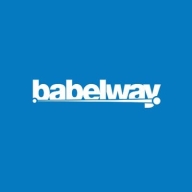

MuleSoft Anypoint Platform and Babelway are competing integration solutions. MuleSoft appears more favorable due to its comprehensive integration capabilities and scalability, whereas Babelway gains appreciation for ease of use and cost-effectiveness.
Features: MuleSoft Anypoint Platform includes API management, versatile connectors, and high security, ideal for complex enterprise integrations. Babelway provides flexibility, centralized automation, and supports various formats, suitable for simpler use cases.
Ease of Deployment and Customer Service: MuleSoft offers hybrid deployment options with comprehensive support, although its complexity may prolong deployment time. Babelway ensures straightforward deployment, efficient cloud capabilities, and responsive customer service, appealing to businesses seeking quick implementation and ongoing support.
Pricing and ROI: MuleSoft incurs higher upfront costs but justifies them with potential scalability and enterprise-level features, offering significant ROI for large-scale implementations. Babelway offers affordable pricing and satisfactory ROI, attracting businesses looking for viable cost-efficient alternatives.
| Product | Market Share (%) |
|---|---|
| MuleSoft Anypoint Platform | 7.0% |
| Babelway | 0.3% |
| Other | 92.7% |
| Company Size | Count |
|---|---|
| Small Business | 22 |
| Midsize Enterprise | 12 |
| Large Enterprise | 30 |
Babelway offers a SaaS-based integration platform that automates business-to-business data and documents. Babelway has built a SaaS application for B2B Integration. It allows organizations to automate cross-company processes and enables the secure exchange of business documents.
MuleSoft Anypoint Platform provides API management and integration capabilities with scalability, ensuring seamless connectivity across systems.
MuleSoft Anypoint Platform offers API management and integration capabilities within a user-friendly interface. With a range of connectors and the ability to handle integration patterns, it enables data integration across environments with support for API-led connectivity. High scalability, observability, batch processing, and tooling are key features, enhancing performance while simplifying deployment.
What are the standout features of MuleSoft Anypoint Platform?MuleSoft Anypoint Platform is employed by organizations for API management and seamless integration across systems in industries like retail and e-commerce. It connects enterprise applications in environments such as SAP and Salesforce. Users leverage it for data transformation and synchronization, achieving efficient real-time processing and a middleware layer across systems.
We monitor all Integration Platform as a Service (iPaaS) reviews to prevent fraudulent reviews and keep review quality high. We do not post reviews by company employees or direct competitors. We validate each review for authenticity via cross-reference with LinkedIn, and personal follow-up with the reviewer when necessary.